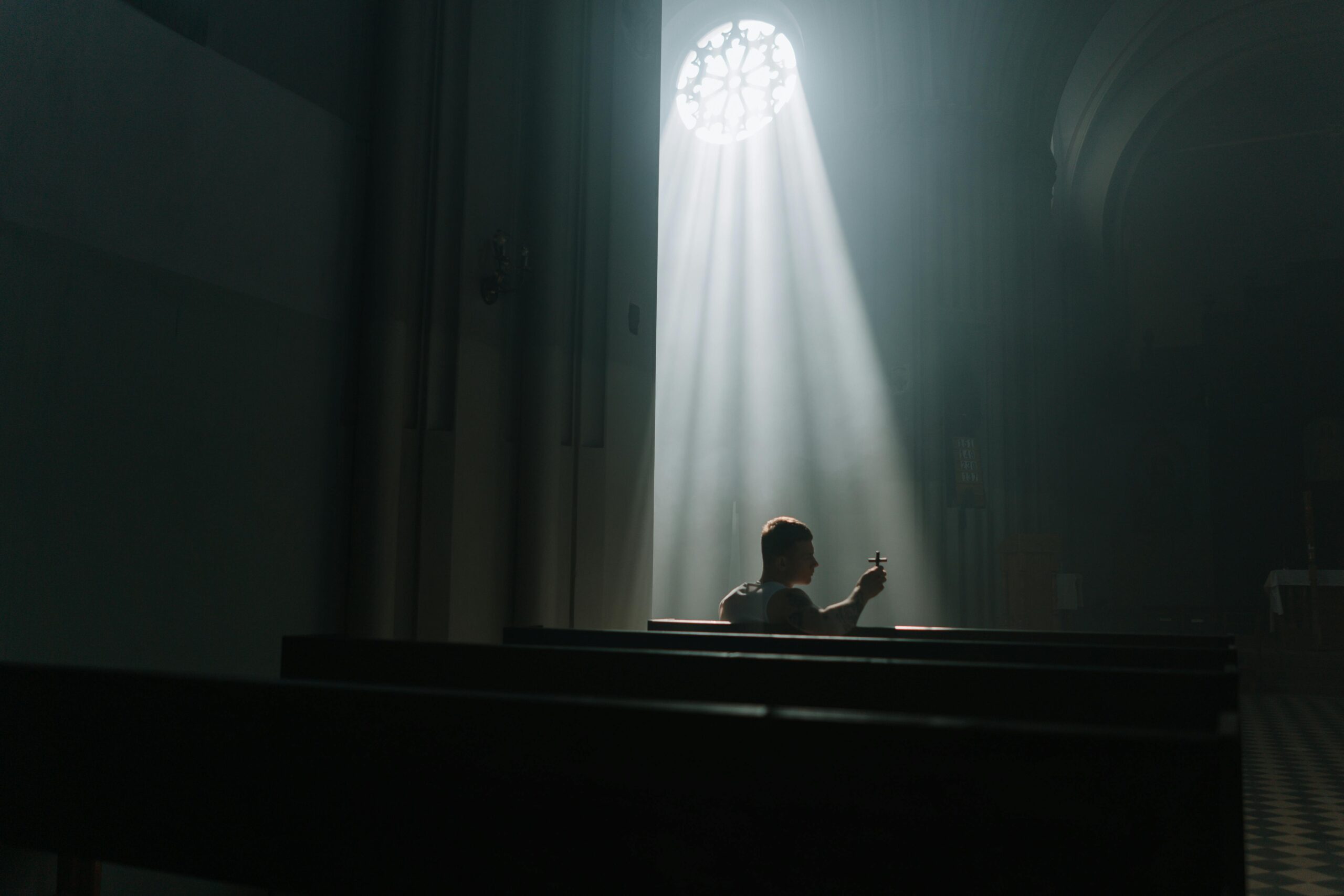My Path to Spiritual Recovery from Gambling
By David M., 47, Houston, Texas
A journey of spiritual and mindful recovery
There was a point when I thought gambling was just a phase—something I could control, a way to blow off steam after long, stressful days. But over time, it became more than a habit. It became a hidden life. I was chasing losses, hiding debt, lying to people I loved, and losing track of who I was. When I finally faced the truth, I knew I needed help. But I also knew I couldn’t afford a high-end inpatient rehab or disappear from my responsibilities for months.
That’s when I began searching for other ways to recover. What I found was something deeper and longer lasting than I expected. I didn’t just need to stop gambling—I needed to heal my spirit. I needed a spiritual recovery from gambling.
Some of the links on this page are affiliate links. That means if you choose to make a purchase, High Stakes Healing may earn a small commission—at no extra cost to you. We only recommend books and resources we believe can truly support your recovery journey.
Why I Didn’t Choose Rehab
Rehab felt out of reach. The programs I looked into were expensive, often $10,000 or more per month. I worried about the stigma. I worried about taking time off work. I worried about telling my family. And deep down, I felt like maybe I didn’t deserve that kind of help. That’s the kind of thinking that addiction feeds on—this idea that you’re not worthy of getting better.
But the turning point came after I hit one of my lowest days. I called a gambling helpline late at night. I remember sitting in my car, hands shaking. The woman on the other end didn’t judge me. She just listened. She gently suggested I try outpatient therapy and reconnect with a spiritual support system—whatever that meant for me.
Starting Therapy—and a New Relationship with Myself
I found a therapist who specialized in gambling addiction. For the first time, I had a space where I could tell the whole truth. She helped me understand the emotional roots of my addiction—my stress, my loneliness, and the constant need to feel in control of something, anything. She taught me how to track my urges and respond with mindfulness instead of escape. Week by week, I built the emotional tools I never learned growing up.
But therapy was only part of it. I knew I had drifted far from my spiritual life. I had grown up with faith, but I had abandoned it quietly, ashamed of how I was living. Recovery gave me a reason to return. I started with simple things—morning prayers, gratitude journaling, reading daily meditations. Slowly, these practices began to anchor me.
What Spiritual Recovery from Gambling Looked Like
Spiritual recovery from gambling doesn’t mean you suddenly become a saint or everything magically heals. For me, it meant making time each day to connect with something greater than myself. I wrote about my fears and asked for strength. I practiced silence and honesty. I forgave myself out loud in prayer—even when I didn’t fully believe it yet.
It also meant reaching out. I found an online support group that combined recovery topics with spiritual encouragement. We shared our stories, our failures, our small wins. That sense of connection and shared faith helped me stay committed, especially when I felt weak or tempted.
Forgiveness and Accountability
One of the hardest parts of spiritual recovery from gambling is facing the people you’ve hurt. I had to sit down with my partner and admit things I’d hidden—money lost, trust broken, lies told. It was painful. But part of recovery is learning to be accountable. I listened. I didn’t defend myself. And slowly, trust began to rebuild—not overnight, but over time, through consistency and humility.
My spiritual practices helped me stay grounded through all of this. Whenever shame crept in, I turned to prayer. When I was tempted to gamble, I reached for my journal or messaged someone from my support group. Spiritual recovery taught me that relapse is not failure—it’s a sign to pause, reflect, and recommit.
Living with Purpose Again
Gambling used to consume my thoughts. Now, my mind is clearer. I still have hard days, but I have tools. I have a spiritual foundation that keeps me centered when emotions surge. I’ve found a new rhythm: therapy for the mind, support groups for connection, and prayer for the soul.
I’ve also started helping others who are just beginning their recovery journey. Sharing what I’ve learned—especially how spiritual healing plays a role—has given me a renewed sense of purpose. It reminds me how far I’ve come and how powerful it is to be part of someone else’s healing too.
Tools That Empower Lasting Recovery
Every healing journey is unique. That’s why we’ve gathered tools to support you on every level — emotional, financial, and spiritual. From therapy platforms to mindful apps and practical books, these resources can guide your next step.
You Can Heal Too
If you’re reading this and wondering if it’s too late or if you’re too broken, I want to tell you: it’s not. You are not beyond healing. You don’t have to walk into a luxury rehab to begin your recovery. You can start right where you are. Begin with honesty. Reach out for help. Explore therapy. Reconnect with your faith. Let spiritual recovery from gambling guide you back to yourself.
There is life after addiction. There is peace after chaos. And there is hope—real, steady hope—when you allow yourself to heal on every level, including the spiritual.
This post reflects a personal recovery journey. We may earn a commission from affiliate links that help support our work. For more resources, visit our Gambling Recovery Roadmap or explore our Support for Gambling Addiction page.
Resources that may Guide you Forward
- Professional Therapy and Counseling for Gambling Recovery
- Reflecting and Repairing After Gambling Relapse With CBT Tools
- Financial Recovery Strategies for a Stable Future Beyond Gambling
FAQs about Spiritual Recovery from Gambling
Is therapy enough for spiritual recovery from gambling?
Therapy can be a powerful foundation for spiritual recovery, especially if you’re working with a professional who respects your values and integrates holistic approaches. Many people find that therapy provides the emotional insight they need to begin healing, but they also supplement it with spiritual practices like prayer, meditation, journaling, or attending faith-based support groups. If your gambling was tied to emotional or existential voids, spiritual reflection can help fill those gaps in meaningful ways.
When is inpatient rehab necessary instead of spiritual or outpatient recovery?
Inpatient rehab is recommended when gambling addiction has reached a crisis point—such as severe financial loss, suicidal thoughts, inability to stop gambling despite consequences, or when there’s a co-occurring mental health condition like depression or substance abuse. In such cases, structured, 24/7 support is vital. However, even in rehab, spiritual recovery can be integrated through mindfulness sessions, pastoral counseling, or group spiritual reflection. For others, a less intensive outpatient program combined with spiritual guidance and therapy may be enough.
Can spirituality alone help me recover from gambling addiction?
Spirituality can be an essential part of recovery, but relying solely on spiritual practices without addressing behavioral patterns may not be enough for everyone. Many people benefit from a combined approach—spiritual reflection for meaning and purpose, and professional support to navigate triggers, trauma, and daily stressors. Think of spirituality as the compass and therapy or support groups as the map to get there. Together, they help you rebuild not just abstinence from gambling, but wholeness and clarity of purpose.
What spiritual practices support recovery from gambling?
Some widely used spiritual practices in recovery include meditation, prayer, breathwork, reading spiritual texts, attending religious services, gratitude journaling, and volunteering. Many also find comfort in 12-step fellowships like Gamblers Anonymous, which emphasize surrender, higher power, and moral inventory. Whether you’re religious or not, spiritual recovery can mean connecting with something greater than yourself—be it nature, community, or a sense of inner peace. The key is consistency and alignment with your personal values.
How do I find a therapist who supports spiritual recovery from gambling?
Look for licensed therapists who specialize in gambling addiction and mention “holistic,” “spiritual integration,” or “faith-based





